Press Tour on Japan’s Development Assistance in Zambia
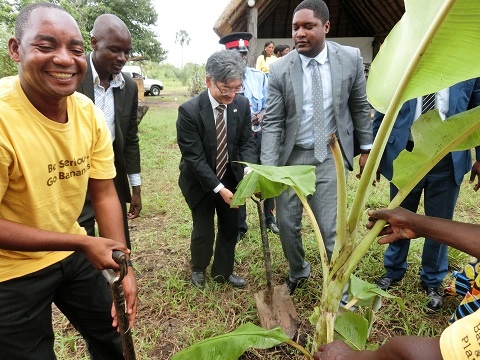
The Embassy of Japan hosted a Press Tour on Japan’s development assistance in Zambia around Chipata, Eastern Province, from 27th February to 2nd March, 2017, including days for transportation.
This tour aims to provide Zambian journalists with the opportunities to deepen understanding of Japan’s cooperation in Zambia for them to widely report to Zambian people, by their visit to some project sites of Japanese assistance.
The Embassy invited reporters, who are based in Lusaka, to Chipata district, which is 600 km away from Lusaka, on the occasion of two handover ceremonies of “Grant Assistance for Grassroots Human Security Projects” which have been funded by the Government of Japan. Two members from ZNBC (Zambian National Broadcasting Corporation) and a newspaper reporter from each of Times of Zambia, Zambia Daily Mail and Zambia Daily Nation participated in the tour. In addition, Mr. Chanda Kasolo, Permanent Secretary for Eastern Province, and other governmental officials also attended the events.
On Tuesday 28th February, the handover ceremony of “The Project for the Expansion of Three Community Schools in Katete” took place. The journalists covered the ceremony, which was attended by Ambassador Sobashima, Mr. Chanda Kasolo, Permanent Secretary for Eastern Province, His Royal Highness Chief M’bam’gombe, Mr. Joseph Mukokola, Katete District Commissioner, among about 300 local citizens including teachers and pupils of the community schools. The grant recipient organisation, Zambian Impact Network Ltd. has provided primary education for children in the outskirts of Katete. Particularly with their e-learning classes with adjusted tablets, many children have achieved good study results. The purpose of visiting this school was to publicise an example of Japanese assistance for an NGO who is providing innovative education for vulnerable children to realise their dreams. To see the details, click here.
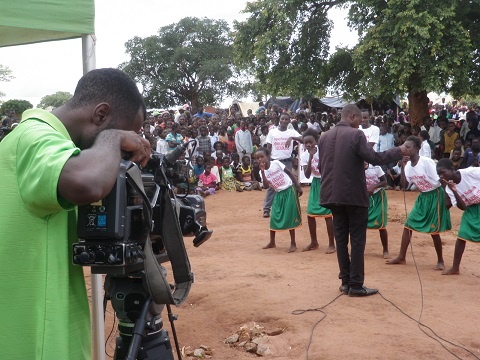
Pupils singing to thank
|
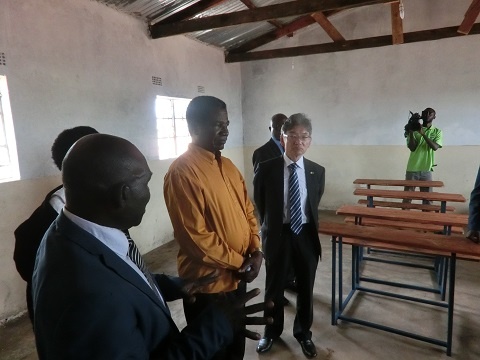
Visitors are briefed in the completed classroom
|
On the same day, people from Lusaka visited a place near Chipata to observe a project implemented by JTI Leaf Zambia Ltd., a Japanese company. JTI Leaf Zambia Ltd. buys tobacco leaves from small scale farmers in the area. The company has also actively engaged itself with its Corporate Social Responsibility (CSR) activities around there, in view of the importance of securing and enhancing farmers’ wellbeing for sustainable agricultural production. Thus the tour participants visited a primary school, a recipient of JTI’s CSR donation. The company contributes to both the education and life of the pupils there, by donating a computer laboratory and a vegetable farm cultivating ingredients for lunch.
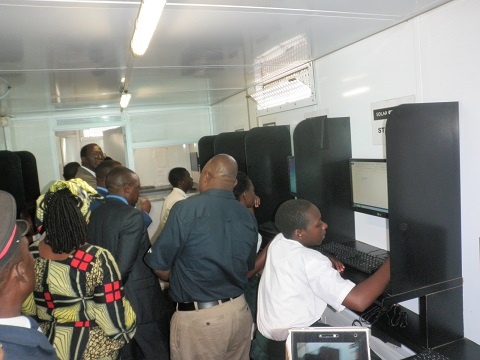
Computer laboratory
|
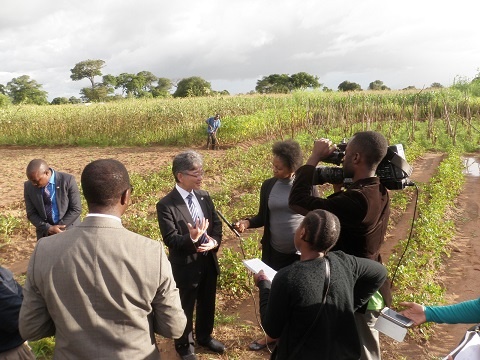
Ambassador Sobashima answering an interview
|
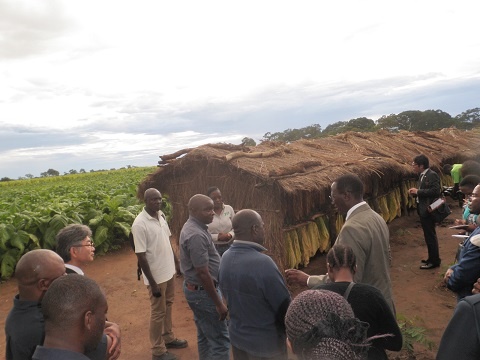
Mfuwe is a scenic village with rich wildlife, located at the entrance of the South Luangwa National Park, one of the most famous tourist destinations in Zambia. However, poverty is rampant among villagers. Therefore, some local residents may commit criminal such crimes as poaching and illegal logging. In order to create job opportunities and mitigate poverty, since 2007, One Planet Café Zambia has started a project for producing paper from banana stems, which are usually thrown away. The extracted fibres had been sent to Japan to make paper and paper products such as business cards or certificates. With the Japan’s support to expand the factory, the organisation is now able to produce banana paper and paper products locally utilising local human resources. It is also notable that One Planet Café Zambia is aiming to achieve all 17 SDGs principles with banana paper production. During the tour, Zambian journalists were invited to appreciate efforts to increase employment opportunities in remote villages as well as those for pioneer undertakings including consideration for the environment. To see the details, click here.
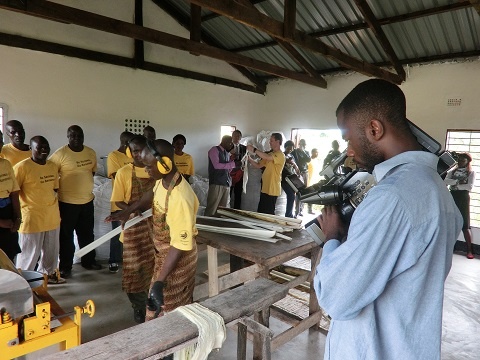
Extracting fibres from banana stem
|
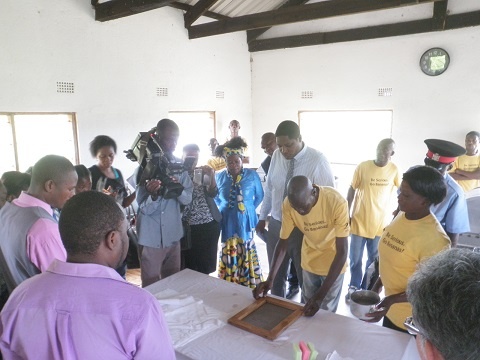
A process to produce paper
|
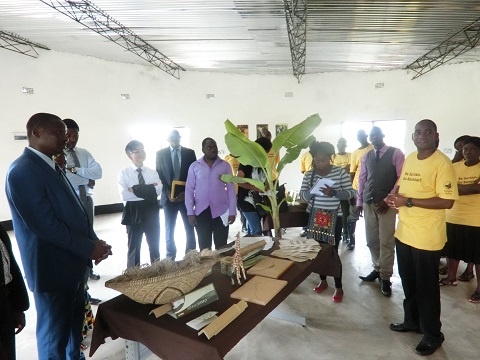
This tour highlights that Japan has implemented projects not only in and around Lusaka but also in provincial areas. It is expected that, through watching TV shows or reading newspapers articles, more Zambian citizens would recognise and appreciate Japanese assistance which has empowered rural communities throughout the country.
To see the report articles, click here.
